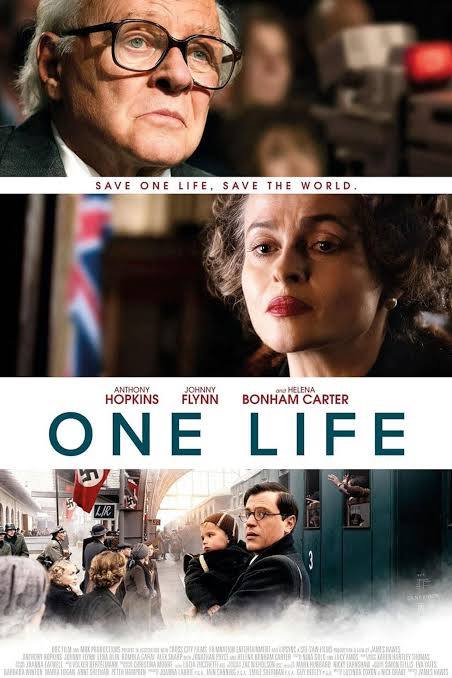
A look at One Life (R)
Most of us have read, listened to or watched all sorts of stories and recollections about World War 2 heroes and heroines. But it wasn’t until 1988 that the full story of the man who saved the lives of 669 Jewish children from German Nazi WW2 horror camps came to light.
London stockbroker Nicholas Winton was in Prague on a business trip in 1938 when he was taken to refugee camps where he saw Jewish families living in appalling conditions. He gets busy along with fellow expatriate British humanitarians to organise visas and passports (many of them fake), keep detailed records (at which Winton was meticulous) and finding ways to get around Czech red tape. But we’ll come to this earlier part of James Hawes’ movie shortly.
Let’s go back briefly to Winton’s life in Maidenhead in the late 1980s.
Tasked by his wife Grete (Lena Olin) to clean out and re-arrange his study, Winton (Anthony Hopkins), does just that but also comes across his old scrapbook inside a battered briefcase.
So he reminisces about his pre-war efforts in Prague when young Winton (Johnny Flynn) works alongside Doreen Warriner (Romola Garai) and Trevor Chadwick (Alex Sharp). After eight successful train trips called Kindertransport carrying the eventual 669 Jewish children had left Prague, the ninth trip was stopped by SS soldiers.
“Why do you want to save all these Jews?” one soldier asks Winton. It’s September 1st 1939 and after Hitler’s pre-emptive strikes on Poland WW2 has started. Just like on the other eight successful evacuations the children have their names and allotted numbers scribbled on cards that hang around their necks.
Despairingly after that final train is stopped Doreen and Trevor are arrested and don’t make it out of central Europe. Back in London Winton’s mother Babi (Helena Bonham-Carter) who runs the London branch had been working flat out with the British bureaucracy, but her role also comes to an abrupt halt.
With her persuasive but probing attitude Babi had managed to solve quite a few administrative hurdles for Winton and his crew. But now her role has been cut short.
Then Hawes takes us back to the Eighties and somehow Winton’s scrapbook had ended up in the hands of Elizabeth Maxwell, wife of Czech-born newspaper tycoon Robert Maxwell. It’s 1987 and Elizabeth doesn’t want Winton’s extraordinary feats to end in her living room. She arranges Winton’s famous 1988 TV appearance on Esther Rantzen’s BBC programme That’s Life.
The presenter and her staff had organised the entire TV studio audience to be Jewish people only. When Rantzen asked people in the studio to stand up if they, or their relatives and descendants, had been saved by Nicholas Winton the entire audience rose to their feet.
Although he was a self-effacing man Winton was overwhelmed and deeply moved by this gesture and maintained until the end of his days that it was one of the greatest moments of his long life.
Nevertheless he had until his final days an ever-burning regret over those poor children he couldn’t save, especially those ordered off the train in September 1939.
Amazingly enough Sir Nicholas, knighted by the Queen in 2003, lived until he was 106. He died in 2015.
